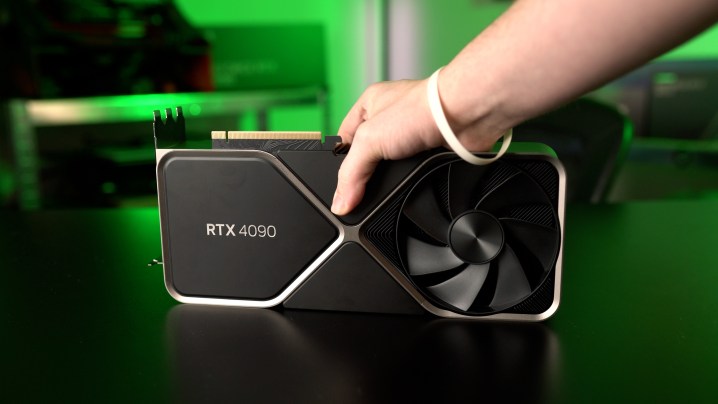
AMD’s former senior vice president and general manager of Radeon has come out with some strong words against Nvidia. Scott Herkelman called Nvidia “the GPU cartel” in response to a story from the Wall Street Journal in which Nvidia’s customers claim that it delays GPU shipments in retaliation for those customers shopping with other suppliers.
The accusation in question comes from Jonathan Ross, CEO of AI chip startup Groq, who said, “a lot of people that we meet with say that if Nvidia were to hear that we were meeting, they would disavow it. The problem is you have to pay Nvidia a year in advance, and you may get your hardware in a year, or it may take longer, and it’s, ‘Aw shucks, you’re buying from someone else, and I guess it’s going to take a little longer.'”
Herkelman responded to Tom’s Hardware’s coverage of the story on X (formerly Twitter), saying, “this happens more than you expect, Nvidia does this with DC customers, [manufacturers], [add-in board partners], press, and resellers.”
This happens more than you expect, NVIDIA does this with DC customers, OEMs, AIBs, press, and resellers. They learned from GPP to not put it into writing. They just don't ship after a customer has ordered. They are the GPU cartel and they control all supply.
— Scott Herkelman (@sherkelman) February 27, 2024
This behavior calls back to the GeForce Partner Program (GPP), as pointed out by Herkelman. Nvidia has canceled the GPP following backlash over it allegedly requiring Nvidia’s partners to remove its gaming branding from all non-Nvidia GPUs. This isn’t the first time Herkelman has come out against the GPP. He released a statement in 2018 shortly after the U.S. Federal Trade Commission (FTC) and European Union Commission began responding to complaints about the program.
“They learned from GPP to not put it into writing,” Herkelman continued. “They just don’t ship after a customer has ordered. They are the GPU cartel and they control all supply.”
Herkelman’s claim about restricting units from press is particularly interesting, as we know about a clear example of that happening in the past. In late 2020, Hardware Unboxed, a YouTube channel dedicated to PC hardware reviews and analysis, received an email that it would no longer receive review units from Nvidia. It stated: “Our Founders Edition boards and other Nvidia products are being allocated to media outlets that recognize the changing landscape of gaming and the features that are important to gamers and anyone buying a GPU today.”
Following pushback from larger YouTube channels like Linus Tech Tips and JayzTwoCents, Nvidia walked back its statement and issued an apology to Hardware Unboxed.
In Nvidia’s latest earnings called, CEO Jensen Huang said, “We allocate fairly. We do the best we can to allocate fairly, and to avoid allocating unnecessarily,” as reported by Fortune. We’ve reached out to Nvidia, and it declined to comment on the story.
Editors' Recommendations
- Nvidia DLSS is amazing, but only if you use it the right way
- Meet Blackwell, Nvidia’s next-generation GPU architecture
- This new GPU feature is ‘a whole new paradigm’ for PC gaming
- AMD needs to fix this one problem with its next-gen GPUs
- Prebuilt vs. custom PC: How to know which is right for you





